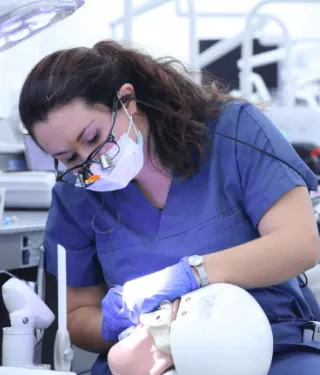
Dalhousie dental faculty and Nobel Biocare: A relationship renewed
To support the next generation of dental professionals, Nobel Biocare has recently granted an array of state-of-the-art scanners and software to Dalhousie University.
Nobel Biocare is committed to educating the next generation of dental professionals through a wide network of university partnerships around the globe. Recently, one of the company’s longest standing collaborations in North America received another boost. Students at Dalhousie University’s Faculty of Dentistry in Canada can now benefit from the new, state-of-the-art CBCT, desktop scanner and NobelClinician treatment planning software Nobel Biocare has provided.
The grant came just in time for Dalhousie University’s 200th anniversary celebrations and the re-opening of the dental clinic, which recently underwent a multi-million dollar make-over. It will help the Faculty to further position itself as one of Canada’s leading dental schools, believes its dean, Dr. Benjamin Davis.
“The support of companies like Nobel Biocare is one of the reasons why we can deliver such a high-quality implant curriculum,” explains Dean Davis. “It really has provided our students and our faculty with wonderful training and support for the full spectrum of implant solutions.”
The Faculty of Dentistry’s relationship with Nobel Biocare goes back almost 40 years, when clinical centers around the country started to introduce the Brånemark system for treating patients with dental implants. Davis himself began his career as an oral and maxillofacial surgeon by working primarily with Nobel Biocare solutions. For him, the relationship has been almost symbiotic.
“Nobel Biocare – and Brånemark in particular – was really the only implant system that had any reputable research at the time,” he says. “As a research-based institution, we had to use products that were supported by evidence-based scientific data.”
Nowadays, Dalhousie primarily relies on NobelReplace, NobelParallel, and NobelActive implants for more challenging cases. According to Davis, treatment planning software like NobelClinician in conjunction with CBCT and intraoral scanners are further helping students make better decisions about where to place implants and demonstrating how this decision would affect the patient. In addition to providing implant solutions and dental equipment, Nobel Biocare has been supporting residents in the Faculty’s general practice residency, graduate periodontal, and oral and maxillofacial surgery programs. The company further delivers hands-on training for students, faculty, staff, and lab technicians.
“The equipment and software really help us to significantly improve the learning experience and our ability to deliver high-quality treatment,” says Davis.
With the new equipment now available to dental students in the Faculty, he predicts no end to the long-standing partnership.
“The commitment Nobel Biocare has made to implantology and the research that supports its decisions make us very comfortable with using their solutions. It is a relationship that will be in existence for as long as we teach implantology and Nobel Biocare stays in the implant business,” Davis concludes.